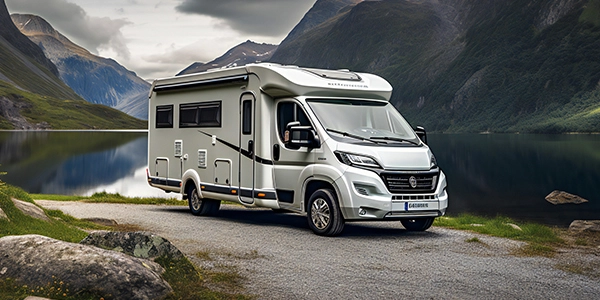What is Motorhome Insurance?
Motorhome insurance is similar to car insurance but is tailored to the unique needs of motorhome owners. Given that a motorhome is both a vehicle and a living space, its insurance covers aspects related to both.
Motorhomes are a great way to see the world, giving you the ability to travel too, park up and sleep wherever you would like. As such, the insurance cover in connection with these vehicles needs to match.
How our process works
We’ve worked hard to refine our process and keep it as quick, easy and simple as possible for our customers.
What’s Covered By Motorhome Insurance?
Basic insurance for you motorhome is available in the below tiers.
- Third Party Only (TPO): This is the minimum level of cover required by law. It covers liabilities to third parties for injury or damage to their property caused by your motorhome. It doesn’t cover damage to your motorhome.
- Third Party, Fire, and Theft (TPFT): In addition to third-party coverage, this includes cover if your motorhome is stolen or damaged by fire.
- Comprehensive: This provides the broadest level of coverage, including third-party liabilities, fire, theft, and damage to your motorhome due to accidents or other covered events.
Addons For Your Policy
A motorhome is not just used for A to B travel, it is a living space. You will use it to carry higher value possessions and travel on roads you’re unfamiliar to. As such, we strongly suggest the below policy addons.
How Much Does Insurance For Motorhomes Cost?
The cost of motorhome insurance will vary significantly based on several factors. It’s hard to give a precise figure without specifics, but here are some factors that can influence the cost of motorhome insurance:
- Type of Motorhome: The class or size of the motorhome or campervan will impact the cost. For instance, larger Class A motorhomes tend to be more expensive to insure than smaller Class B or Class C motorhomes. Additionally, luxury models or models with more features might come with higher premiums.
- Value of the Motorhome: A brand-new, high-end motorhome will generally cost more to insure than an older, basic model because it would be more expensive to replace or repair.
- Usage: How often and for what purpose you use your motorhome can influence your premium. A motorhome used for occasional weekend trips might be cheaper to insure than one used for full-time living.
- Storage: Where and how you store your motorhome when it’s not in use can impact the cost. A motorhome stored in a secure facility or garage might attract lower premiums than one left on the street.
- Location: Insurance premiums can vary by region or country due to factors like crime rates, risk of natural disasters, and local regulations.
- Driving History: As with car insurance, a driver with a clean record is likely to get a lower rate than someone with a history of accidents or violations.
- Level of Cover: Opting for comprehensive coverage with all the additional features will cost more than a basic third-party only policy.
- Excess: This is the amount you agree to pay towards any claim. A higher voluntary excess can reduce your premium, but you’ll need to pay more out-of-pocket if you make a claim.
- Age of the Driver: Younger drivers, especially those under 25, often face higher premiums due to perceived higher risks.
- Security Measures: Having additional security features like alarms, tracking devices, or immobilisers might reduce your premium.
- Special Discounts: Membership in motorhome clubs, having other policies with the same insurer, or limited mileage can offer discounts on premiums.
What Is The Difference Between A Motorhome And A Campervan?
A motorhome tends to be larger and is more modular in its layout. The interior will be separated out to create living spaces with permanent fixtures. These will typically include a kitchen area, living area and sleeping areas. Motorhomes will also benefit from a toilet and shower whereas a campervan will not.
Campervans on the other hand are smaller and will only have basic amenities such as a sleeping area and cooking area.
A motorhome is clearly defined by the DVLA as well and requires separate insurance. It is possible to cover some campervans under a van or car policy though depending on the vehicles and its facilities.
Getting Cheaper Motorhome Cover
Saving money on motorhome insurance requires a combination of smart shopping, understanding your cover needs, and taking preventive measures to reduce risk. Here are some ideas to help you save on your next quote.


